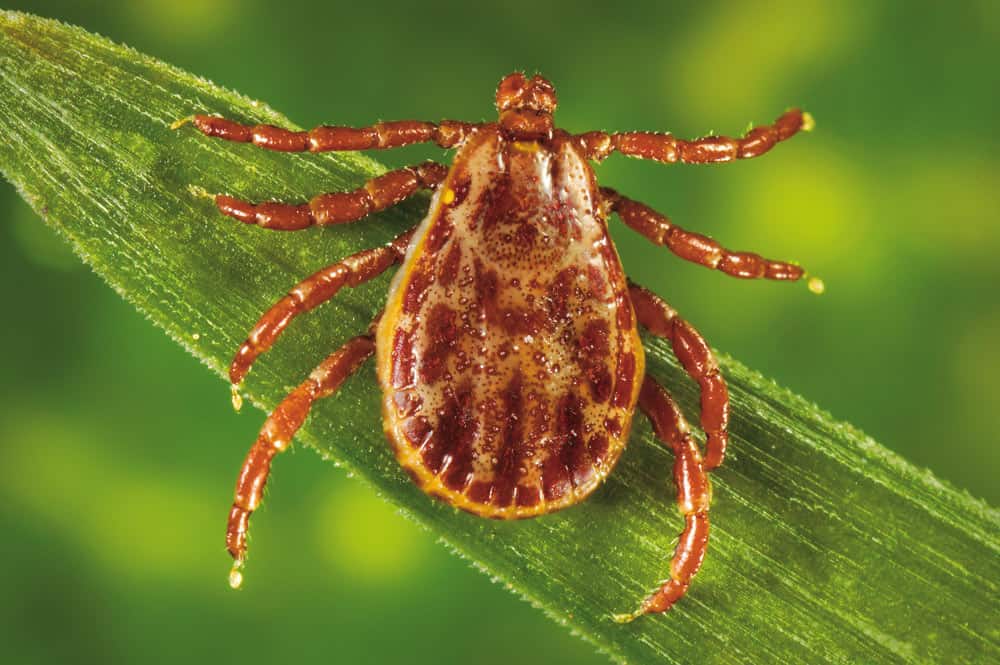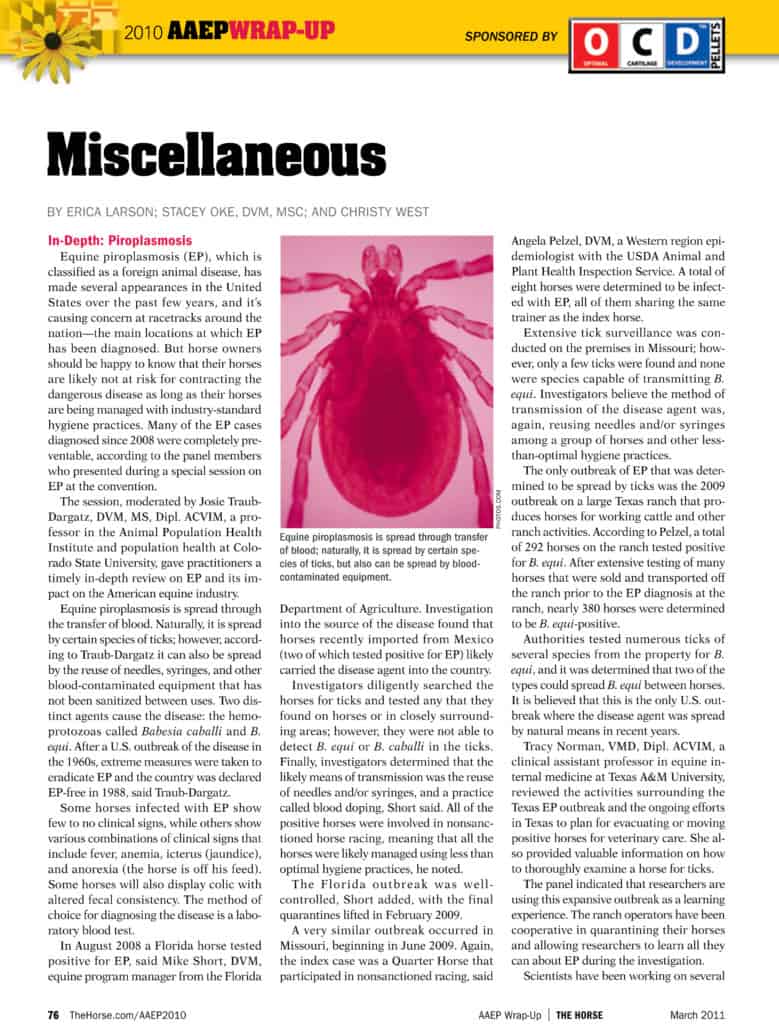
Piroplasmosis Table Topic (AAEP 2012)
Attendees discussed several topics including the history of EP, regulatory issues, and practical topics.

Attendees discussed several topics including the history of EP, regulatory issues, and practical topics.

Recent outbreaks have prompted further investigation into the re-emergence and control in the United States.
Robert Mealey, DVM, PhD, Dipl. ACVIM discussed the therapeutics and immunology associated with piroplasmosis.

Robert Mealey, DVM, PhD, Dipl. ACVIM, of Washington State University shares his team’s research on equine piroplasmosis, a tick-borne disease caused by a parasitic protozoan.
All 10 of the seized adult horses tested positive for equine piroplasmosis (EP).
Topics discussed included racetrack testing requirements, current testing options, and recent reerach results.
All horses originating from Texas must be accompanied by proof of a negative EP test to enter Kentucky.
Equine piroplasmosis (EP) is a tick-borne disease detected in isolated outbreaks in the United States within
The International Collating Center, Newmarket, United Kingdom, and other sources reported the following
A team of researchers from Brazil recently determined that the Cayenne tick, which frequents the southern U.S.
Ticks are not only unsightly, they also can transmit infectious diseases such as ehrlichiosis, Lyme disease, and piroplasmosis to horses. Severe infestations can cause skin irritations and even anemia (a decrease of healthy red blood cells).
International reports of contagious equine metritis, equine herpesvirus, equine influenza, strangles, equine piroplasmosis, equine arteritis virus, Eastern equine encephalomyelitis, West Nile virus, salmonella, and more.

Additional topics discussed during the 2010 American Association of Equine Practitioners convention included piroplasmosis in horses, guttural pouch infection in foals, detomidine sedative and eye pressure, and eye photography to assist case evaluation and treatment.
All horses competing at the American Quarter Horse Association (AQHA) World Show will now be required to test negative for the tick-borne disease equine piroplasmosis (EP) before being allowed to enter the show grounds. The mandate comes following a

What horse owners need to know about piroplasmosis in horses, from Dr. Josie Traub-Dargatz of Colorado State University. (Presented at the 2010 American Association of Equine Practitioners convention)
After passing a rigorous proficiency testing program, the UK Livestock Disease Diagnostic Center (LDDC) has been approved by the United States Department of Agriculture National Veterinary Services Laboratory to begin testing horses for Equine Piroplasmosis.
Stay on top of the most recent Horse Health news with
"*" indicates required fields